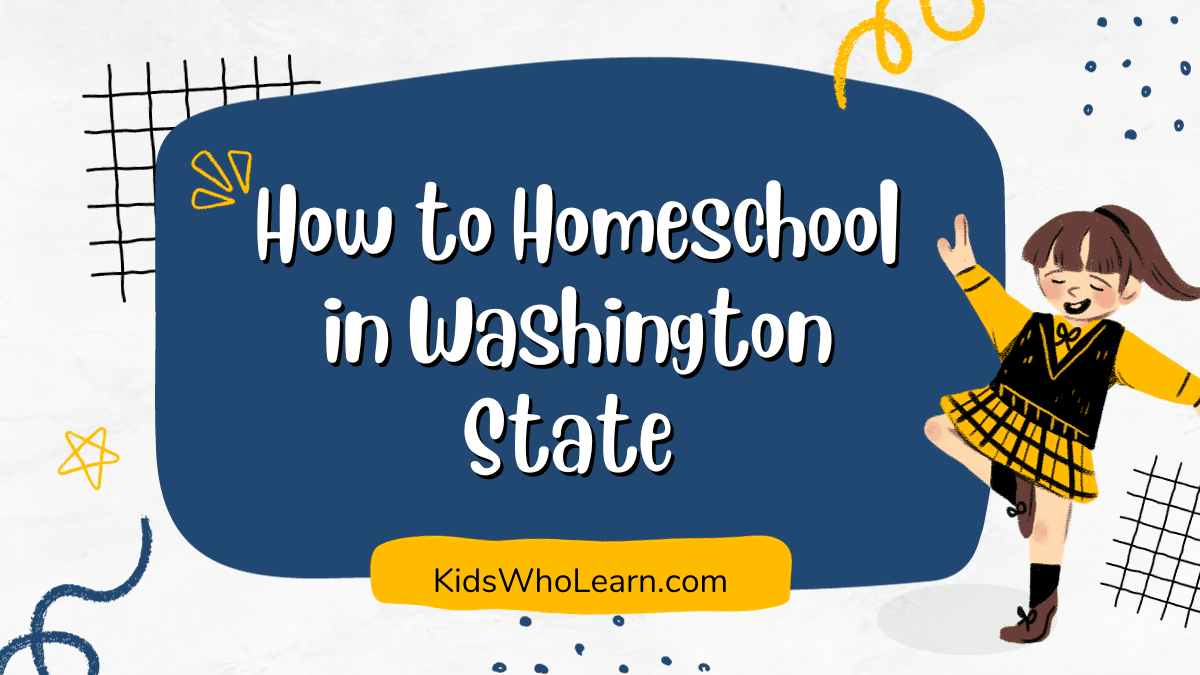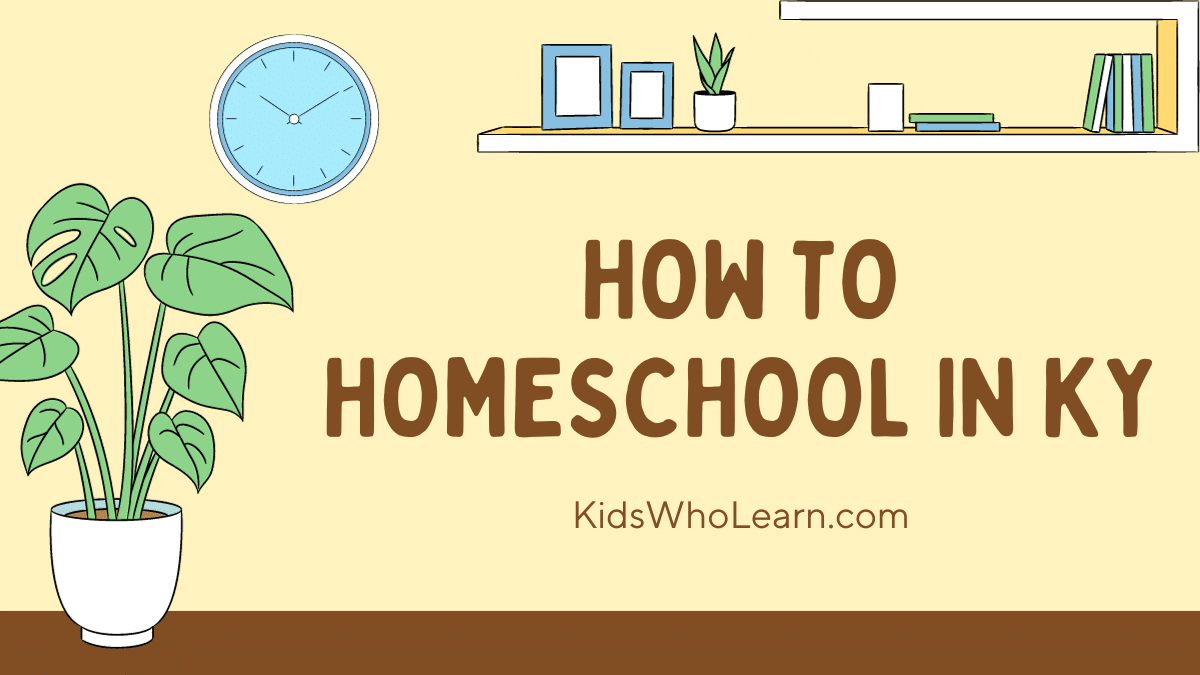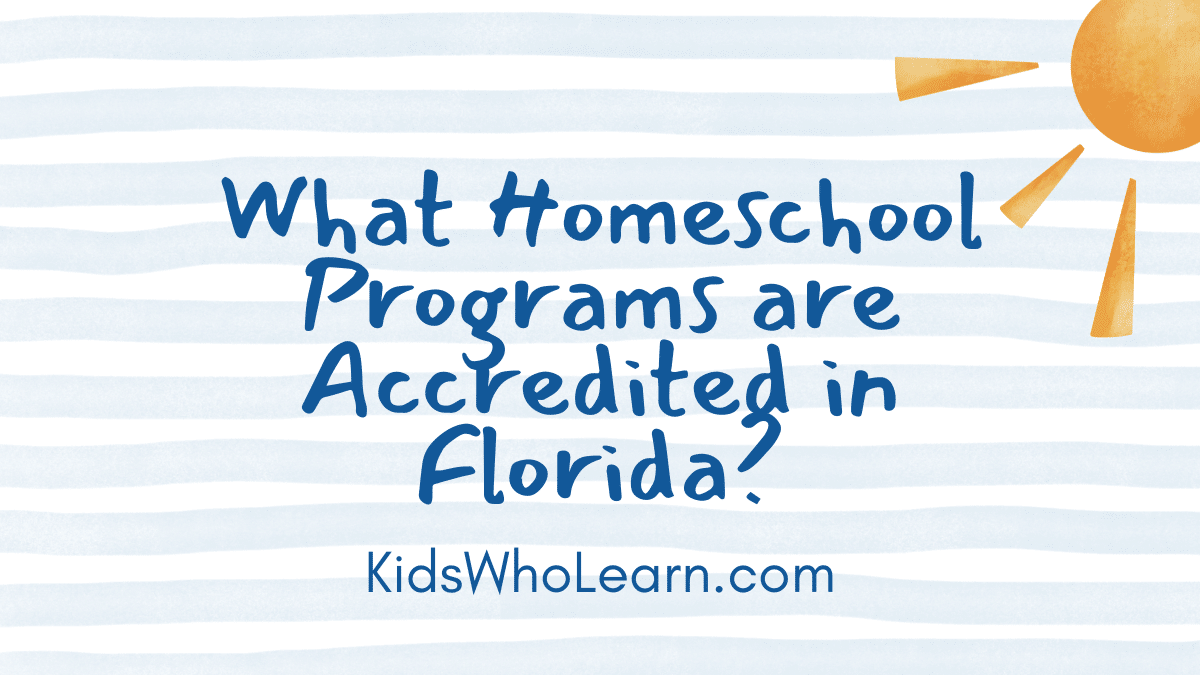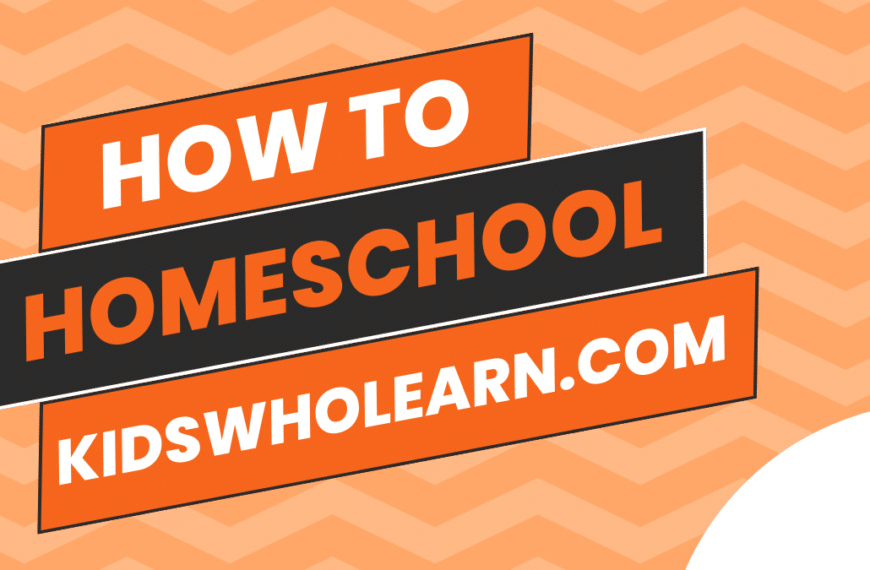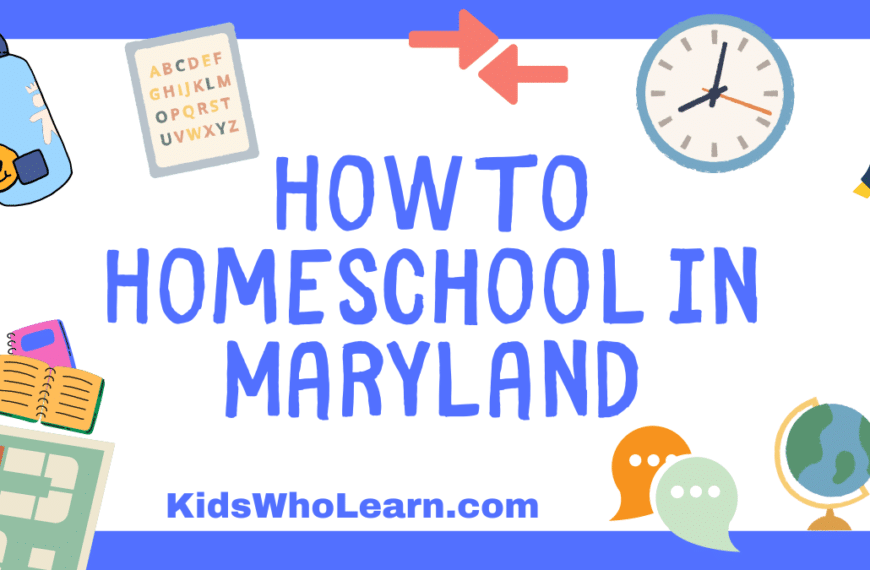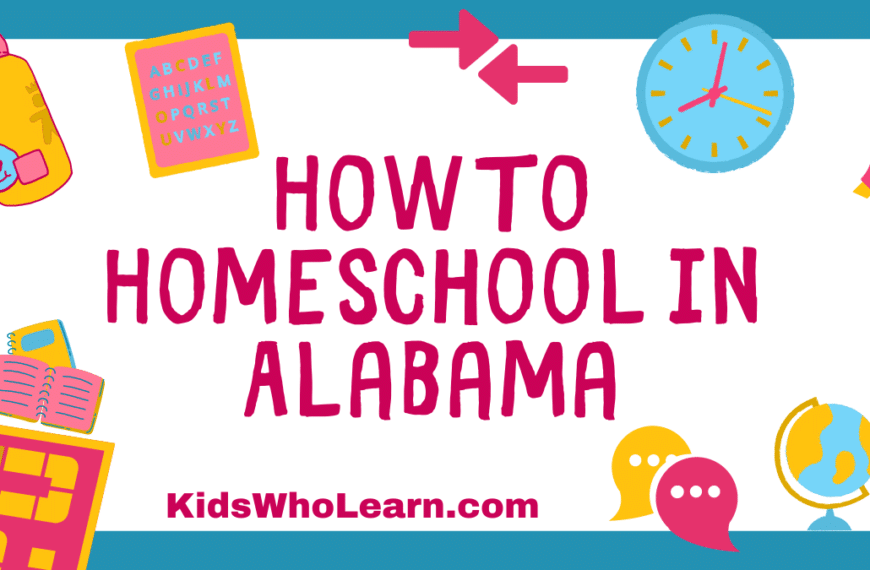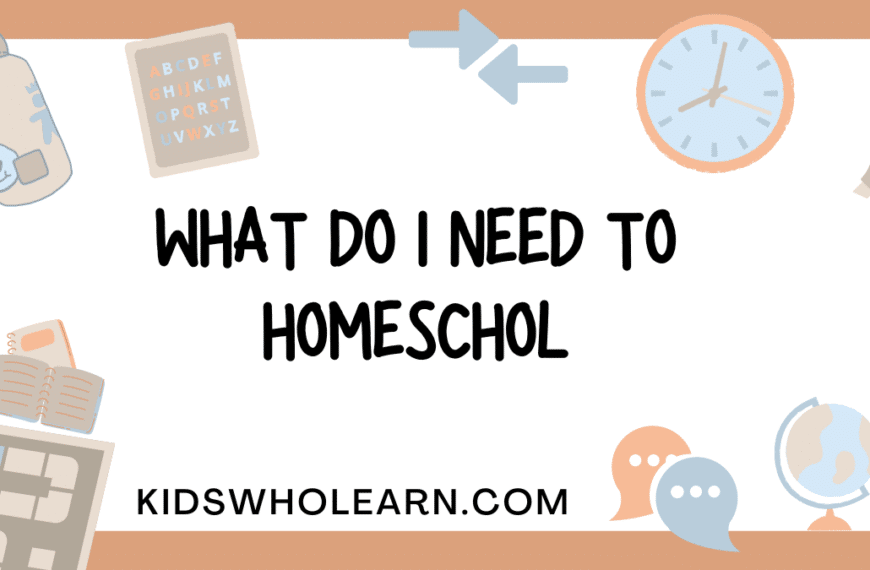Homeschooling can be a rewarding and flexible educational option for families in Washington State. With the freedom to personalize your child’s learning experience, homeschooling allows you to cater to your child’s individual needs, interests, and strengths. However, navigating the world of homeschooling for the first time can be overwhelming, and it’s essential to understand the legal requirements and various methods available to you.
In Washington State, homeschooling is well-regulated and supported, ensuring that your child will receive a quality education in line with state requirements. This article will provide you with a comprehensive guide to homeschooling, including understanding the legalities, selecting the best method, and successfully implementing the curriculum, while also setting up an environment conducive to learning.
Key Takeaways
- Be familiar with Washington State’s homeschooling laws and requirements
- Choose a homeschooling method that meets your child’s unique learning needs
- Connect with other homeschoolers and plan for future education opportunities
Understanding Homeschooling
Homeschooling can be a rewarding and flexible educational choice for your family in Washington State. To start, familiarize yourself with the state’s homeschooling laws. You’ll need to file a Declaration of Intent, which informs your local school district of your decision to homeschool. Remember, children between the ages of 8 and 18 are required to attend school in Washington, so homeschooling is a legal alternative that needs to be documented.
Once you’ve filed the Declaration of Intent, it’s time to choose a curriculum that suits your child’s needs. Washington State law requires that specific subjects be taught, including:
- Reading
- Writing
- Mathematics
- Science
- Social studies
- History
- Health
- Occupational education
- Art and music appreciation
Feel free to use resources like local homeschooling groups, online forums, and curriculum providers to find the best fit for your family. You can mix and match materials from different sources, and tailor the lessons to your child’s needs, interests, and learning style.
In Washington State, the parent or guardian providing homeschool instruction must meet one of the following qualifications:
- Have earned at least 45 quarter hours (30 semester hours) from a college or university.
- Attend a parent-qualifying course.
- Be directed in teaching by a certified instructor.
- Be deemed qualified by the local superintendent.
Once you’ve met the requirements and found a suitable curriculum, don’t forget about the social aspects of homeschooling. Encourage your child to participate in extracurricular activities, such as sports, music, and clubs. You can also arrange playdates, field trips, and group learning activities with other homeschool families in your area. This will help your child build social skills and lasting friendships, and also provide you with a supportive community of parents to share your homeschooling journey with.
Keep track of your child’s progress by conducting annual assessments which can be a standardized test or a non-test alternative. Regular evaluations help ensure that your child is on track academically and can easily transition to public or private school if needed in the future.
Homeschooling in Washington State can be a fulfilling and successful endeavor, as long as you adhere to the legal requirements and nurture a comprehensive and enjoyable learning environment for your child.
Legal Requirements for Homeschooling in Washington State
When you decide to homeschool your children in Washington State, it’s essential to be aware of the legal requirements. First, you need to declare your intent to homeschool by submitting a signed declaration of intent to your local school district. This should be done annually by September 15 or within two weeks of starting your homeschool program.
In order to be qualified to provide home-based instruction, you must meet one of the following requirements:
- Have a high school diploma or higher education degree.
- Have completed a homeschooling parent-qualifying course.
- Work with a certified teacher for a minimum of one contact hour per week.
Washington State law requires homeschool students to complete an 11-subject curriculum that covers:
- Reading, writing, and spelling.
- U.S. and Washington State history, including the Constitution.
- Math.
- Science.
- Social studies.
- Art and music appreciation.
- Health and physical education.
- Occupational education.
- World history.
- Geography.
- Foreign language (high school level).
Additionally, you must assess your child’s progress annually. This can be done by standardized testing or through an annual evaluation by a certified teacher or person with specific qualifications. Maintain records of your child’s test scores and progress evaluations as they might be requested by the school district.
Remember, it’s essential to stay informed and keep up-to-date with the legal requirements and any changes that may occur. By following these guidelines, you’ll be well on your way to a successful homeschooling journey in Washington State.
Choosing Your Homeschooling Method
When you decide to homeschool your kids in Washington State, it’s essential to choose a method that fits your educational philosophy and your child’s learning style. In this section, we will explore a few popular approaches to homeschooling.
Traditional Homeschooling is similar to the classroom experience found in public schools, but you have the flexibility to choose your own curriculum and pace. This method often includes textbooks, workbooks, and standardized tests. The advantage of traditional homeschooling is that it can provide a familiar structure for both you and your child.
Unschooling is a more relaxed, child-led educational approach where you follow the interests of your child rather than a set curriculum. Instead of focusing on structured lessons, you encourage your child to explore their passions and curiosity. This method can help develop a love for learning, but it’s crucial that you provide guidance and support to ensure they cover necessary subjects.
Charlotte Mason is a method based on the educational philosophy of the British educator Charlotte Mason. This approach emphasizes the importance of short lessons, living books, and experiential learning. It encourages a strong focus on literature, nature study, and art in your child’s education.
Montessori and Waldorf are two more specific methods you might consider. Both emphasize hands-on learning, creativity, and child-led interests. Montessori focuses on independent learning and practical life skills, while Waldorf emphasizes spiritual and social development.
Consider visiting online forums, attending local homeschool support groups or conferences, and talking to experienced homeschooling families in Washington State to help you decide on the best method for your family. Remember that it’s okay to mix and match different approaches or switch methods if something isn’t working for your child. Experiment and adapt to find the homeschooling method that works for you and your child.
Planning Your Homeschool Curriculum
Selecting Subjects
When planning your homeschool curriculum, start by determining the subjects you want to teach. In Washington state, basic education must include subjects like reading, writing, math, science, and social studies. You can also add subjects like art, music, and physical education to create a well-rounded education for your child.
Choosing Resources
Once you have your subjects, the next step is to choose the resources that work best for your family:
- Textbooks: Look for reliable, up-to-date textbooks that cover each subject. Check reviews from other homeschool families to ensure the materials are effective and engaging.
- Online resources: Websites, digital libraries, and learning platforms such as Khan Academy or Time4Learning can be valuable tools to supplement your chosen curriculum.
- Community support: Connect with other homeschool families in Washington state for advice, resource sharing, and networking opportunities. Co-ops and local homeschool groups can be especially helpful.
Building Structure
Creating a structured routine is essential for success in homeschooling. Consider the following factors as you develop your homeschool schedule:
- Daily routine: Set a consistent start and end time for schoolwork each day, ensuring ample time for breaks and meals.
- Weekly schedule: Organize your weekly schedule by assigning specific subjects on particular days or creating a rotating schedule.
- Yearly plan: Map out your entire school year, including important dates, holidays, and when you plan to cover each subject or unit.
Remember, homeschooling allows for flexibility, so you can always adjust the schedule or rearrange topics based on your child’s progress and needs. Stay open to making changes and maintain a friendly, positive atmosphere throughout your homeschool journey.
Setting Up Your Homeschool Environment
Creating a suitable homeschool environment in Washington State is essential for a successful learning experience. By considering a few key elements, you can craft a space that promotes both focus and motivation.
First, designate a specific area in your home for homeschooling. This dedicated space should be comfortable, well-lit, and separate from common recreational areas. By doing so, you’re establishing a clear boundary between learning and downtime.
Secondly, organize your homeschool materials in a systematic manner. Having a clean, clutter-free environment will allow your child to focus better on their lessons. Implement storage solutions such as shelves, drawers, and containers to keep your space functional and organized.
Thirdly, your homeschooling area must be equipped with essential resources like books, stationery, and computers or tablets. Don’t forget to install a reliable internet connection, as most curriculum materials and resources are found online.
Additionally, personalize your homeschool space with some educational posters, charts, or calendars to create a visually stimulating environment for your child. Include comfortable seating and consider adding a few plants for boosted air quality and mood.
Lastly, establish a daily routine to maintain consistency in your homeschooling. A structured schedule with designated times for various subjects will help keep your child engaged and motivated throughout the day.
By following these suggestions, you’re well on your way to creating an effective homeschool environment in Washington State to ensure the best possible education for your child. Remember to stay flexible and adjust your space as needed to best suit your child’s learning style and growth.
Record Keeping
When homeschooling in Washington state, it’s essential to maintain proper records. Here are some key aspects you’ll need to focus on:
Attendance Records
As a homeschool educator, you must keep a record of your child’s attendance. Remember to log the days and hours of instruction. It’s a good idea to use a calendar or a planner to make this process easier.
- Note the subjects taught daily
- Mark holidays and other non-instructional days
This documentation will assist you in tracking your child’s progress and ensuring you meet the required 1,000 hours of annual instruction.
Assessment Reports
Washington state requires annual assessments for homeschooled students. Thus, it’s vital to maintain a thorough record of these evaluations. To organize your child’s assessment reports, you can:
- Create a folder for each school year
- Include the results of your chosen assessment method, such as standardized tests, assessments done by a certified teacher, or evaluation by a certified psychologist
- Add samples of your child’s work and projects completed during the year
Keeping detailed assessment records will help showcase their academic achievements and growth.
Immunization Records
Lastly, you’ll need to maintain your child’s immunization records in accordance with the state’s requirements. Make sure to:
- Obtain an official “Certificate of Immunization Status” (CIS) form
- Update the form whenever your child receives a new vaccine
- Make a copy of the completed form
By staying organized and attentive to these three crucial areas of record-keeping, you’ll be able to support your homeschooling journey and stay compliant with Washington state requirements.
Connecting with Other Homeschoolers
One of the key aspects of homeschooling is connecting with other homeschoolers in your area to share experiences, resources, and provide support. In Washington State, there are many opportunities for you to create connections with other homeschooling families.
Joining Homeschooling Groups
There are various homeschooling groups you can join in Washington State. These groups typically offer meetings, activities, and events, encouraging interaction between families and collaboration in the learning process.
-
Local homeschooling co-ops: These are groups formed by families in a specific area, where parents take turns teaching various subjects or organizing field trips. You can search for a co-op in your locality through online platforms like Facebook or meetup.com.
-
Online homeschooling forums and support groups: Online groups can help you stay connected with other homeschoolers, discuss specific topics, and share resources. Some popular options are the Washington Homeschool Organization Facebook group and the Washington State Homeschoolers forum.
Remember, each group has its own rules and expectations, so make sure to read through their guidelines before joining.
Attending Homeschooling Conferences
Conferences and expos are great opportunities to learn about homeschooling, access resources, and meet other homeschoolers from across Washington State. These events often feature workshops, seminars, curriculum vendors, and expert speakers.
-
Washington Homeschool Organization (WHO) Convention: Held annually in June, the WHO convention is a major event where you can discover new curriculum ideas, attend workshops, and network with like-minded families.
-
Inland Northwest Homeschool Conference: This conference takes place in Spokane and offers various workshops and a chance to connect with local homeschooling families.
By engaging with other homeschoolers in these ways, you can build a supportive network for your homeschool journey in Washington State. Be proactive in reaching out, learning from others, and sharing your experiences to create a thriving homeschool community.
Transitioning into Further Education
Standardized Testing
When you’re homeschooling in Washington State, preparing for standardized testing is essential for your child’s transition into further education. As a homeschooler, consider having your child take the Annual National Test for their grade. Schedule these exams in advance and ensure your child is well-prepared.
To assess your child’s readiness for higher education, they’ll likely need to take the SAT or ACT. These exams are universally accepted by colleges and universities across the United States. Here’s how you can prepare your child for these essential tests:
- Help them become familiar with the test structure and content by reviewing practice materials.
- Provide a study schedule with specific goals and milestones.
- Encourage focused studying by minimizing distractions and creating a conducive environment.
Applying for College
Once your child has successfully completed their standardized tests, it’s time to apply for college. Research colleges that match your child’s goals and preferences to create a list of potential institutions. Make sure to keep track of application deadlines, as they may vary from college to college.
When applying, gather all necessary documents in advance. Homeschooled students will typically need to provide:
- High school transcripts or equivalent
- Results of SAT or ACT exams
- Letters of recommendation from tutors or mentors
- Personal essays on relevant topics
Filling out college applications can be daunting, so support and guide your child throughout the process to set them up for success. It’s important to highlight their homeschool experience by elaborating on unique learning experiences, extracurricular activities, and special accomplishments. This will help convey their strengths as a motivated and well-rounded applicant.
Frequently Asked Questions
What are the legal requirements for homeschooling in Washington?
In Washington State, parents who choose to homeschool their children must follow specific legal requirements. First, you should have a high school diploma or equivalent education. Next, you must file a Declaration of Intent with your local school district by September 15th each year. Finally, you’re required to instruct your child in the mandatory subjects and either meet regularly with a certified teacher or have your child assessed annually.
What subjects are mandatory for homeschooling in Washington State?
For a successful homeschooling experience in Washington State, you must teach the following subjects: reading, writing, spelling, mathematics, science, social studies, history, health, occupational education, and art and music appreciation. These subjects ensure that your child receives a well-rounded education, comparable to that offered in public schools.
What is the Declaration of Intent for homeschooling in Washington?
The Declaration of Intent is a legal document that you must submit to your local school district before you begin homeschooling your child. This document, submitted annually, notifies the school district of your intention to homeschool, ensuring that your child is accounted for and not considered truant.
Can someone else homeschool my child in Washington State?
Yes, someone else can homeschool your child in Washington State provided that the person meets the qualification requirements and follows the legal homeschooling guidelines. This could be a family member, friend, or someone from your homeschooling support group. They must have a high school diploma or equivalent, follow the Declaration of Intent process, and teach the mandatory subjects.
What are the best homeschool programs in Washington State?
While there are many homeschool programs available in Washington State, the “best” program will depend on your child’s needs and preferences. Some popular homeschool programs include K12, Connections Academy, Time 4 Learning, and Abeka. Be sure to research and compare different programs to find the one that best suits your family’s needs.
What testing is required for homeschooling in Washington State?
Testing is an essential part of homeschooling in Washington State, but it doesn’t necessarily mean standardized testing. Each year, you must either meet with a certified teacher who can evaluate your child’s progress or have your child take a standardized test approved by the State Board of Education. This evaluation will help you track your child’s academic growth and make informed decisions about their education.

